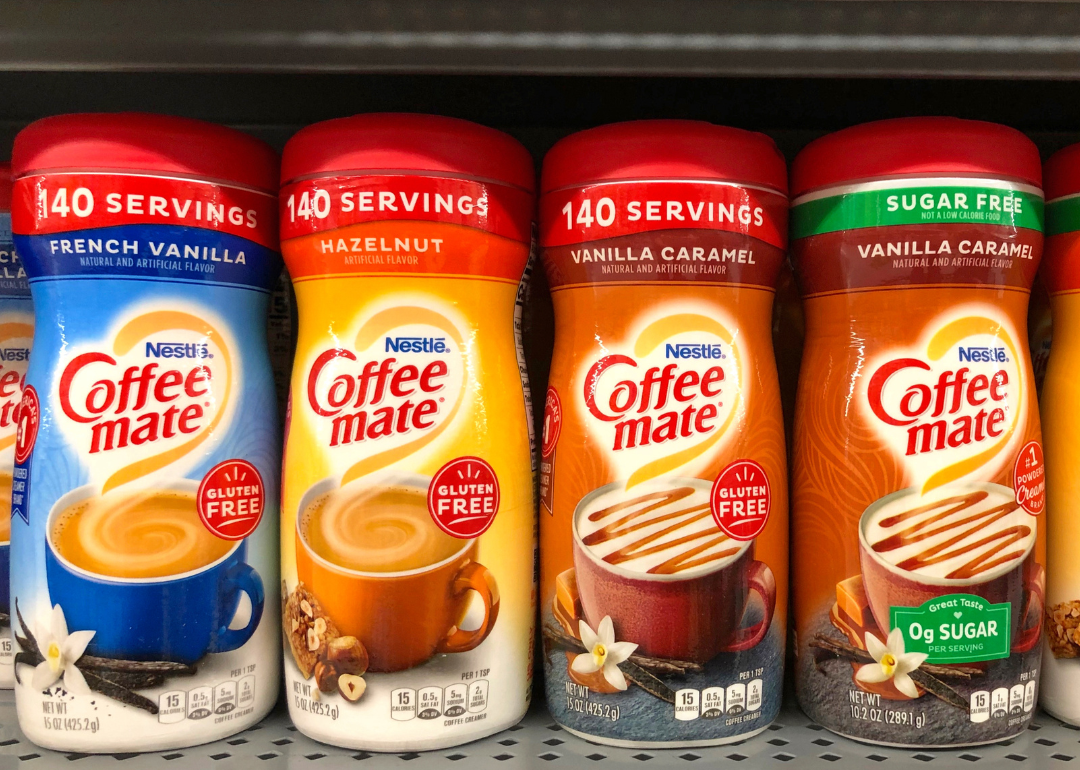
15 common US foods that are banned in other countries
15 common US foods that are banned in other countries
Consumers in the United States put their trust in organizations such as the Food and Drug Administration and the Department of Agriculture to keep packaged foods, fish, and livestock production safe—but to what standards?
The U.S. holds liberal policies on genetically modified organisms, which are more restricted or banned outright in other countries. Plus, many American food additives and production standards that have been approved domestically are banned or strictly regulated abroad. Though the FDA issued a ban on Red Dye 3—a colorant linked to higher rates of cancer development in animals—in January 2025, countless other additives remain on grocery store shelves. What chemicals are lurking in the ingredients of some of America's favorite foods? What production practices are standardized in the United States but illegal in other parts of the world?
Click through Stacker's list to discover 15 everyday American food products with ingredients that are banned in other countries.
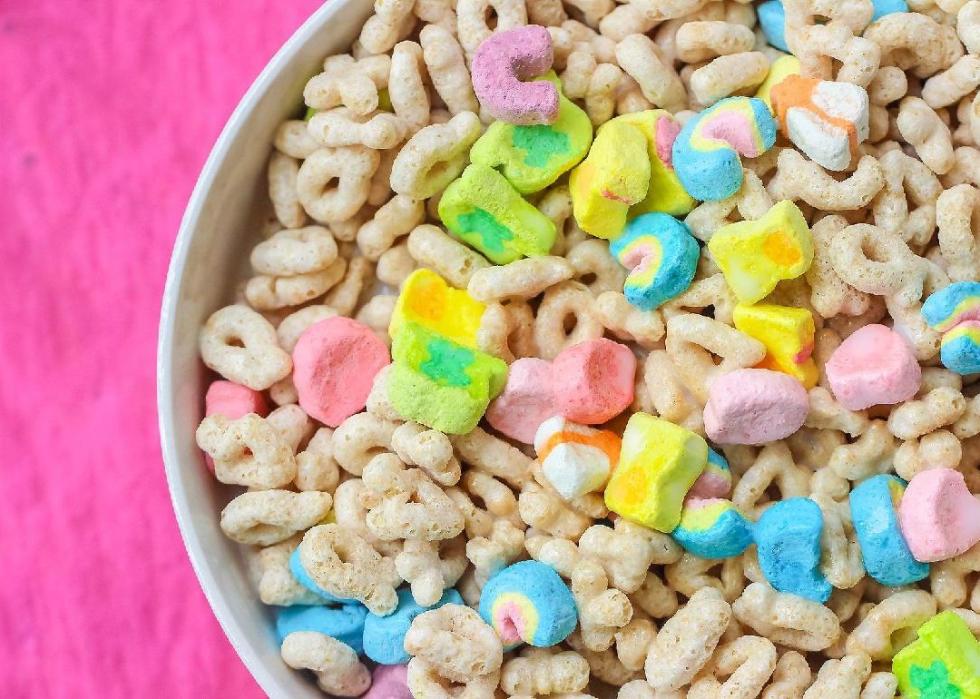
Lucky Charms
This colorful breakfast cereal gets its rainbow hue by using additives Yellow 5, Yellow 6, and Red 40, which must contain warning labels in the European Union. They are also banned in Norway and Austria. They are permitted in the U.S. even though they are known to cause itching and hives for some.
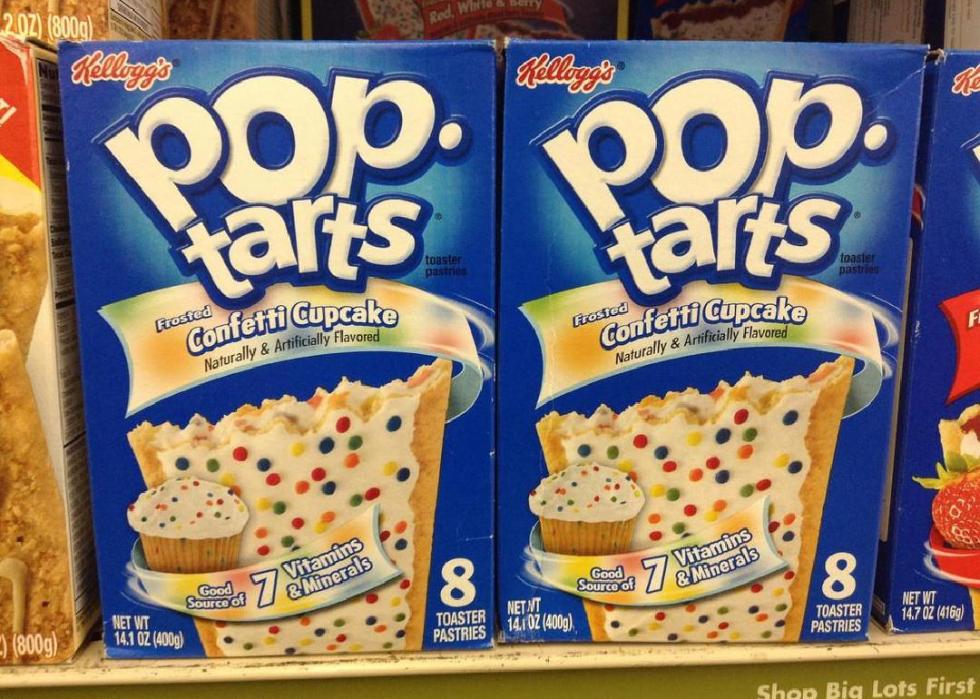
Pop-Tarts
The colorful breakfast pastry contains food dyes Yellow 5, Yellow 6, and Red 40, which are still deemed safe to eat domestically but are partially banned in the European Union.
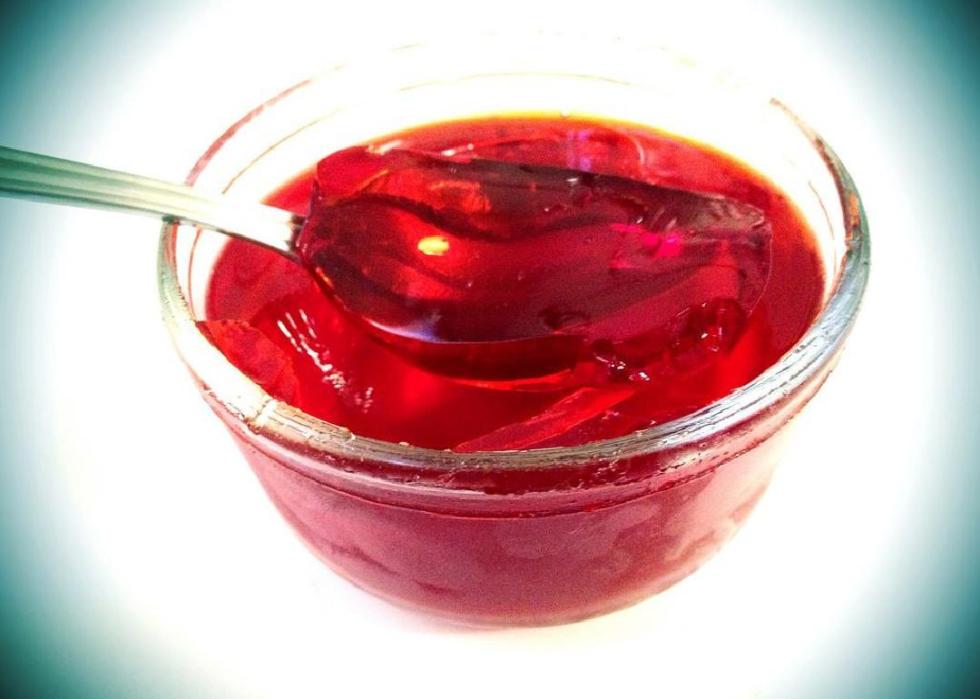
Raspberry Jell-O
This popular jiggling dessert is low in calories and free from artificial sweeteners like high fructose corn syrup. But its color is far from natural. It contains Red 40, which is restricted in Europe and illegal in Norway and Austria.
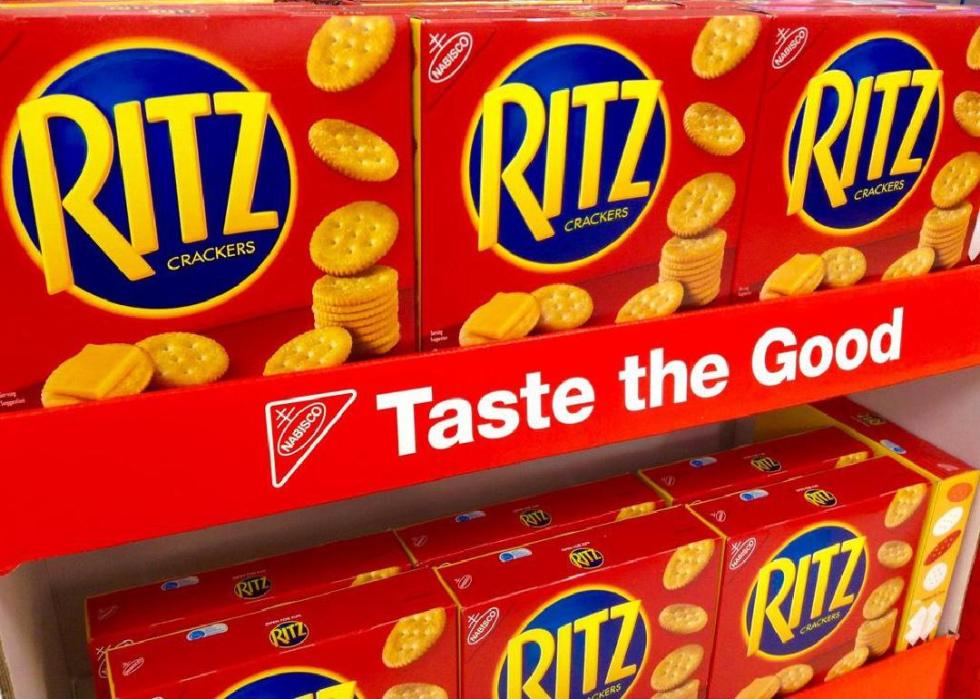
Ritz Crackers
Nabisco's Ritz is among the leading cracker brands in the United States. Its namesake cracker contains partially hydrogenated cottonseed oil, which is a trans fat that is currently banned domestically and is limited in many other countries like Switzerland, Austria, Hungary, Iceland, Norway, and Denmark.
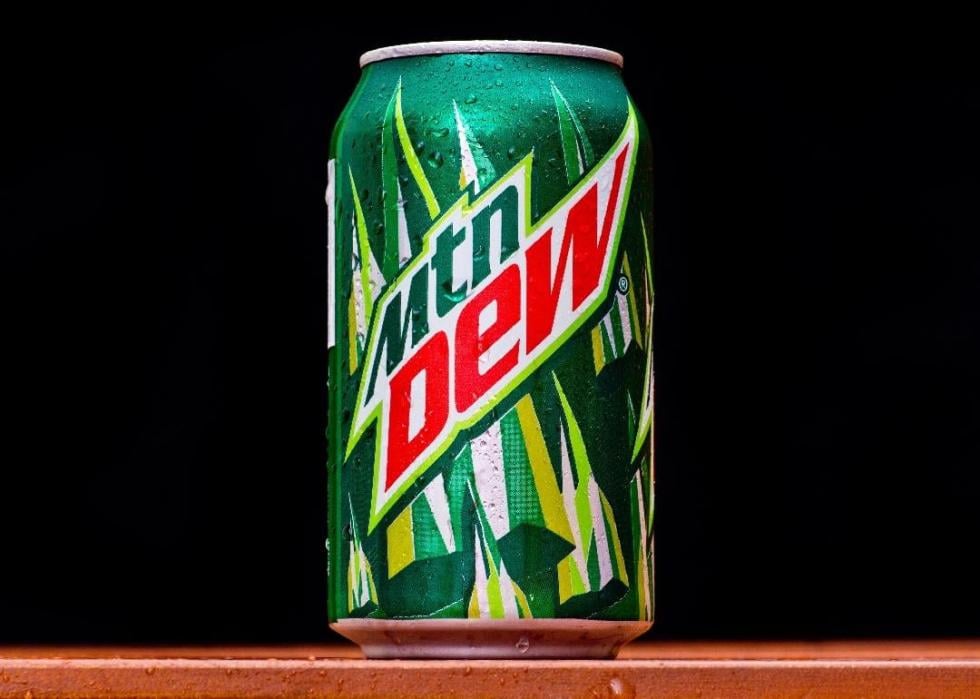
Mountain Dew
This citrus-flavored soft drink uses brominated vegetable oil (BVO) as an emulsifier. BVO is banned in Japan and the European Union because it contains bromine, the element found in brominated flame retardants, which can build up in the body and potentially lead to memory loss as well as skin and nerve problems.
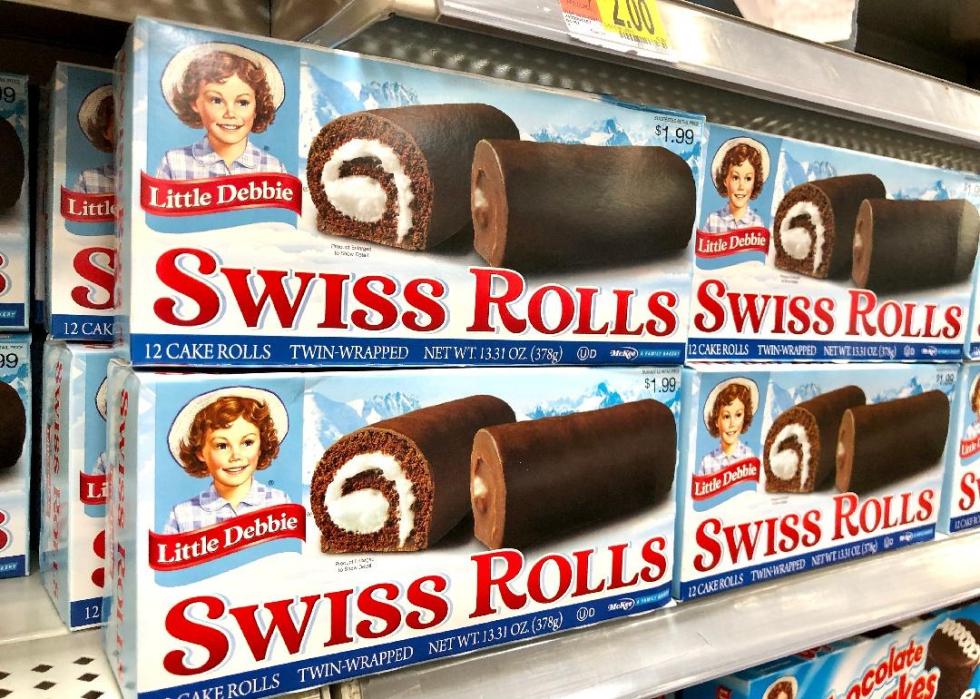
Little Debbie Swiss Rolls
This popular dessert in the United States contains food dyes Yellow 5 and Red 40. While they now are permitted in the European Union, they have to carry warnings that they cause adverse effects in children. They are also banned in foods for infants and young children. No such warning is required domestically. Norway and Austria have banned the chocolate treats outright.
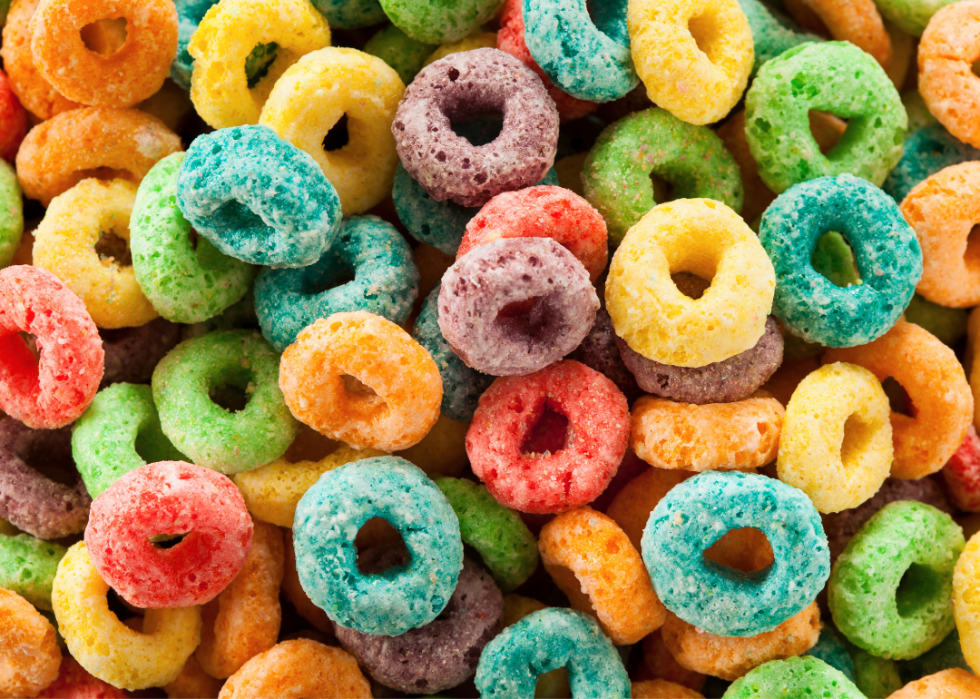
Froot Loops, Honey Bunches of Oats, and other cereals
These popular breakfast cereals contain BHT, a flavor enhancer, which has long been studied for its potential carcinogenic properties; the evidence is inconclusive. It is banned in Japan and the European Union.
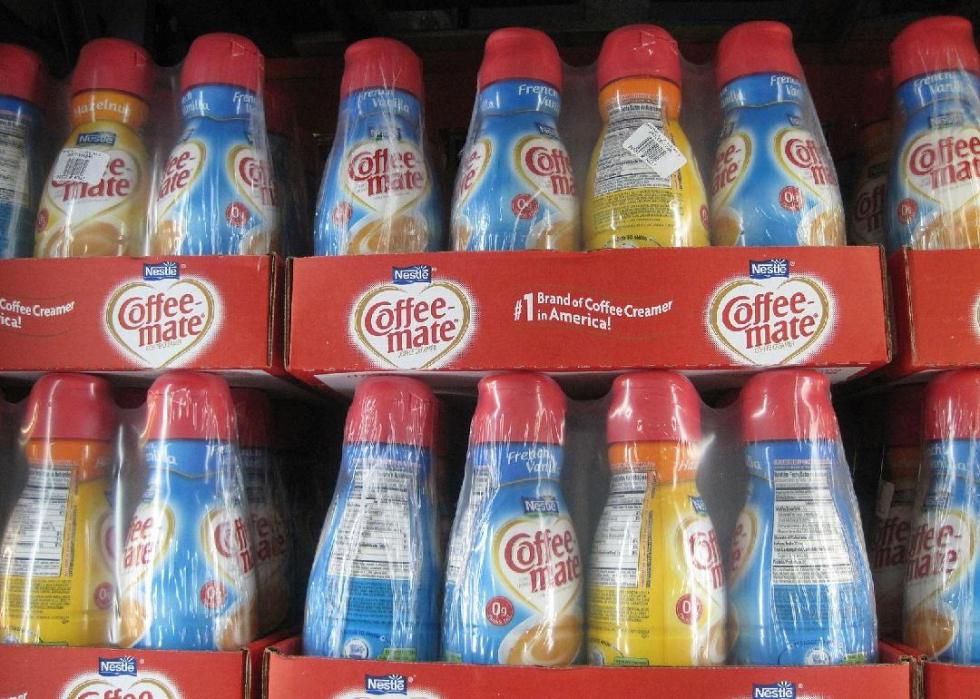
Coffee-mate
Trans fats like the partially hydrogenated soybean and cottonseed oils in Coffee-mate are linked to heart disease and were officially banned in the U.S. as of June 18, 2018. However, they still linger in the U.S. food supply. There are also mandatory limits on trans fats in many other countries such as Switzerland, Austria, Hungary, Iceland, Norway, and Denmark.
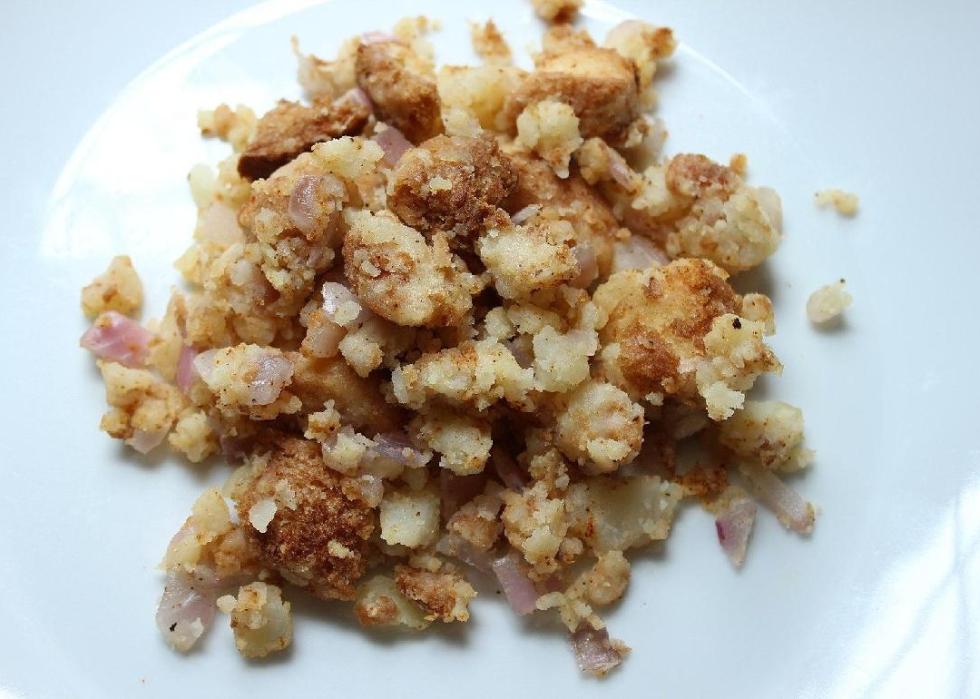
Stove Top stuffing
You can make stuffing in just five minutes with this popular Kraft product. But the mix contains preservatives BHA and BHT, which are suspected to be carcinogenic and to impair blood clotting. This has caused these preservatives to be banned in the United Kingdom, Japan, and several European countries.
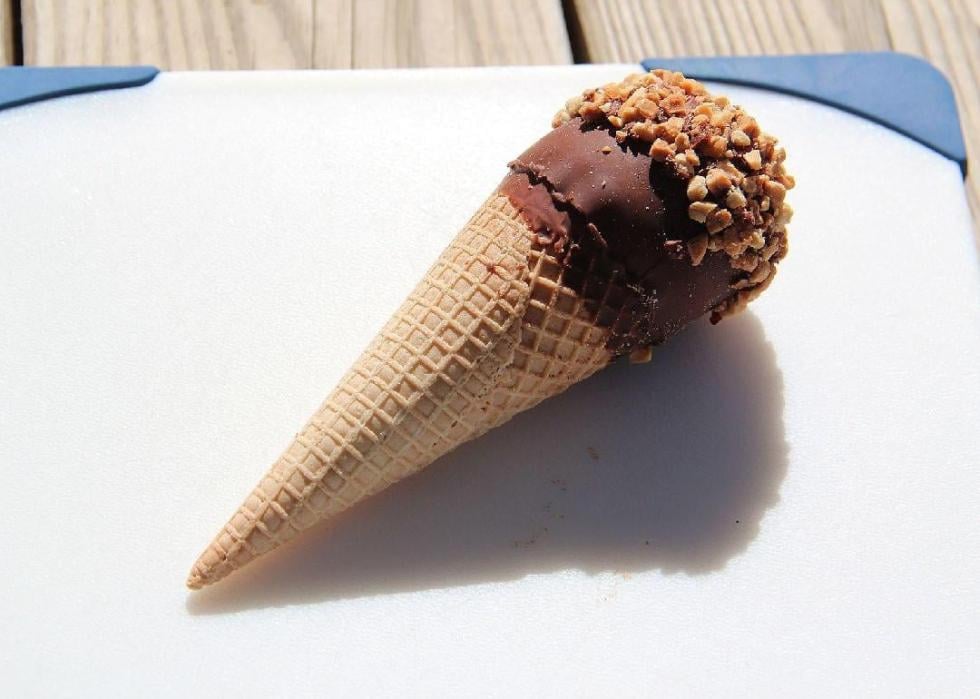
Drumstick frozen dairy desserts
Drumstick uses carrageenan for texture in its ice cream, but the additive that is derived from seaweed can affect the human digestive system. The adverse effects have caused the European Union to limit it in products like baby food.
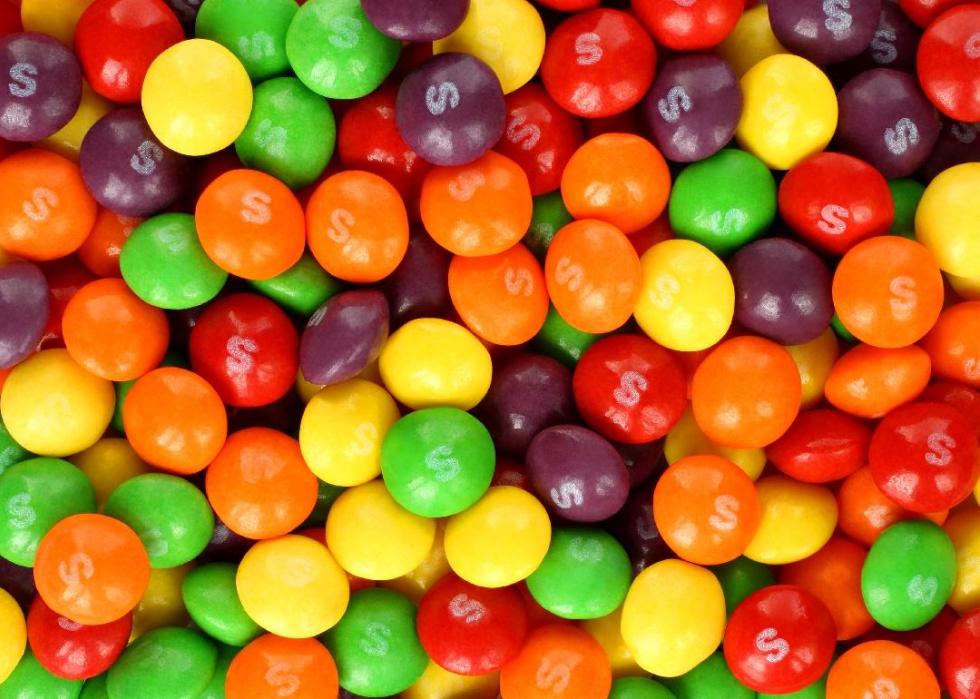
Skittles
When consumers are tasting the rainbow of this popular candy, they are also ingesting food dyes Yellow 5, Yellow 6, and Red 40. These dyes have been known to have adverse effects on young children. They are banned in foods for infants in the European Union, and foods that contain the dyes must carry a warning label. Norway and Austria ban them completely.
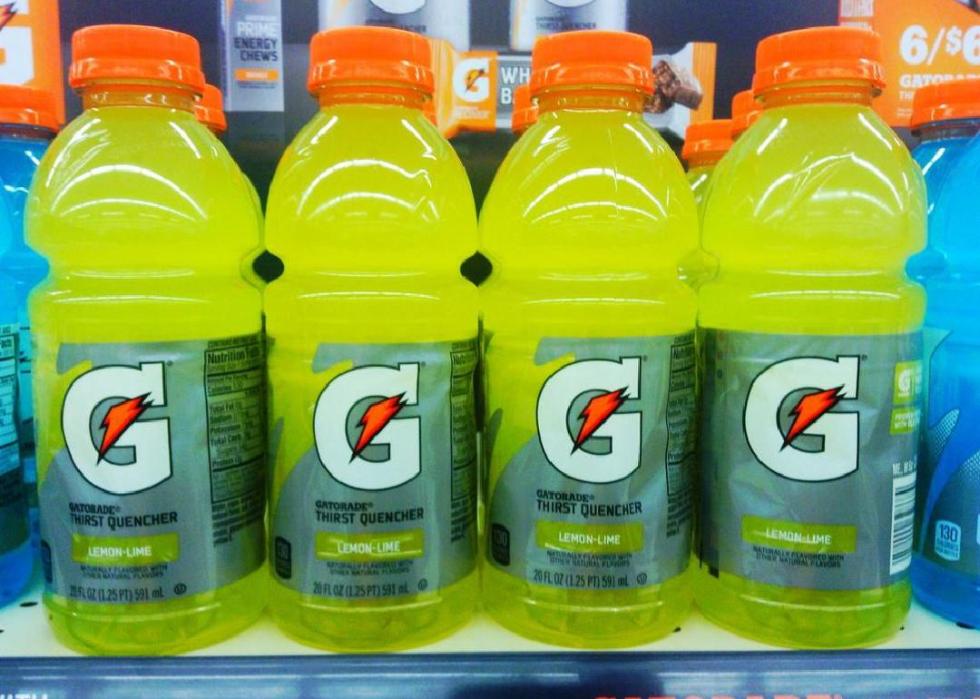
Gatorade
This sports drink claims to replenish electrolytes, but it also contains food dyes Yellow 5 and Yellow 6. These artificial colors are banned in foods for infants and children in the European Union, and they must also carry warnings on all other products there. They are completely banned in Norway and Austria.
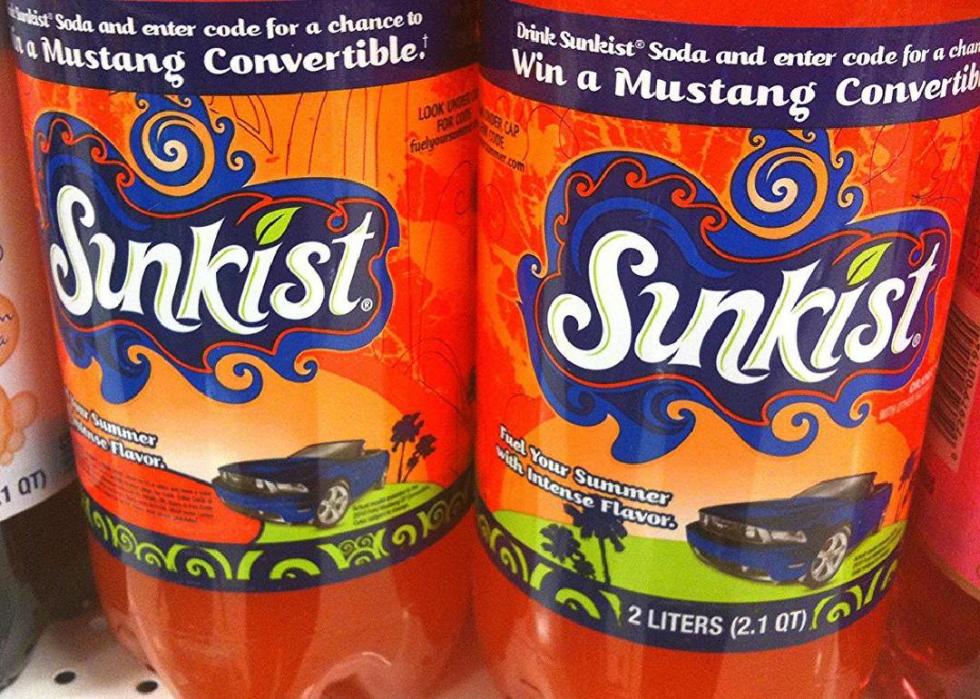
Sunkist Soda
The citrus drink contains artificial colors that are restricted in Europe. Products that contain Yellow 6 and Red 40 must include warning labels in the European Union. These dyes are also banned in Norway and Austria.
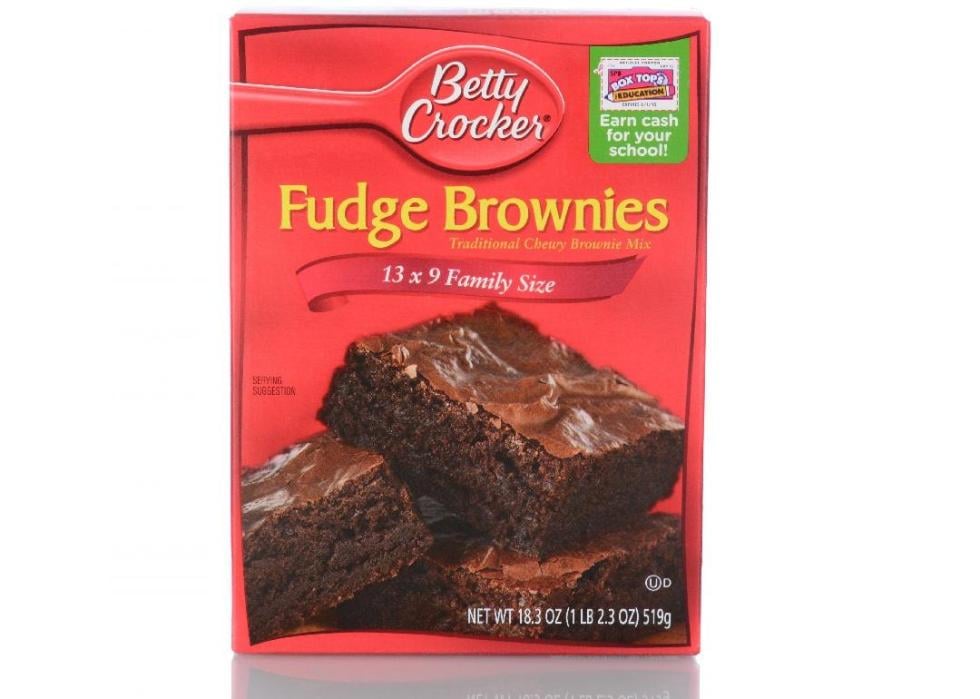
Betty Crocker Fudge Brownie Mix
Baking brownies couldn't be easier with this popular mix. However, a closer look at the ingredients reveals the product still contains trans fats in the form of partially hydrogenated soybean and/or cottonseed oil. Trans fats were recently banned in the U.S., but a few still remain. They are also heavily limited in Switzerland, Austria, Hungary, Iceland, Norway, and Denmark.
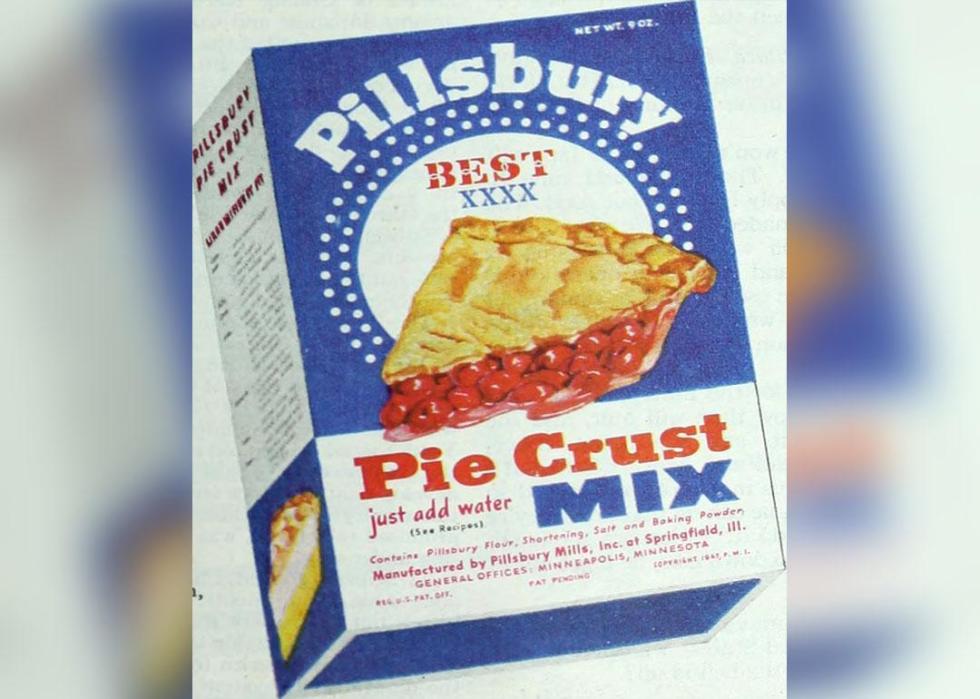
Pillsbury Pie Crust
Pillsbury brings the convenience of a ready-made pie crust to kitchens across the country. However, this product is banned in the United Kingdom, Japan, and parts of Europe because it contains both BHA and BHT. The substances are suspected to be carcinogenic and have been linked to impaired blood clotting.



